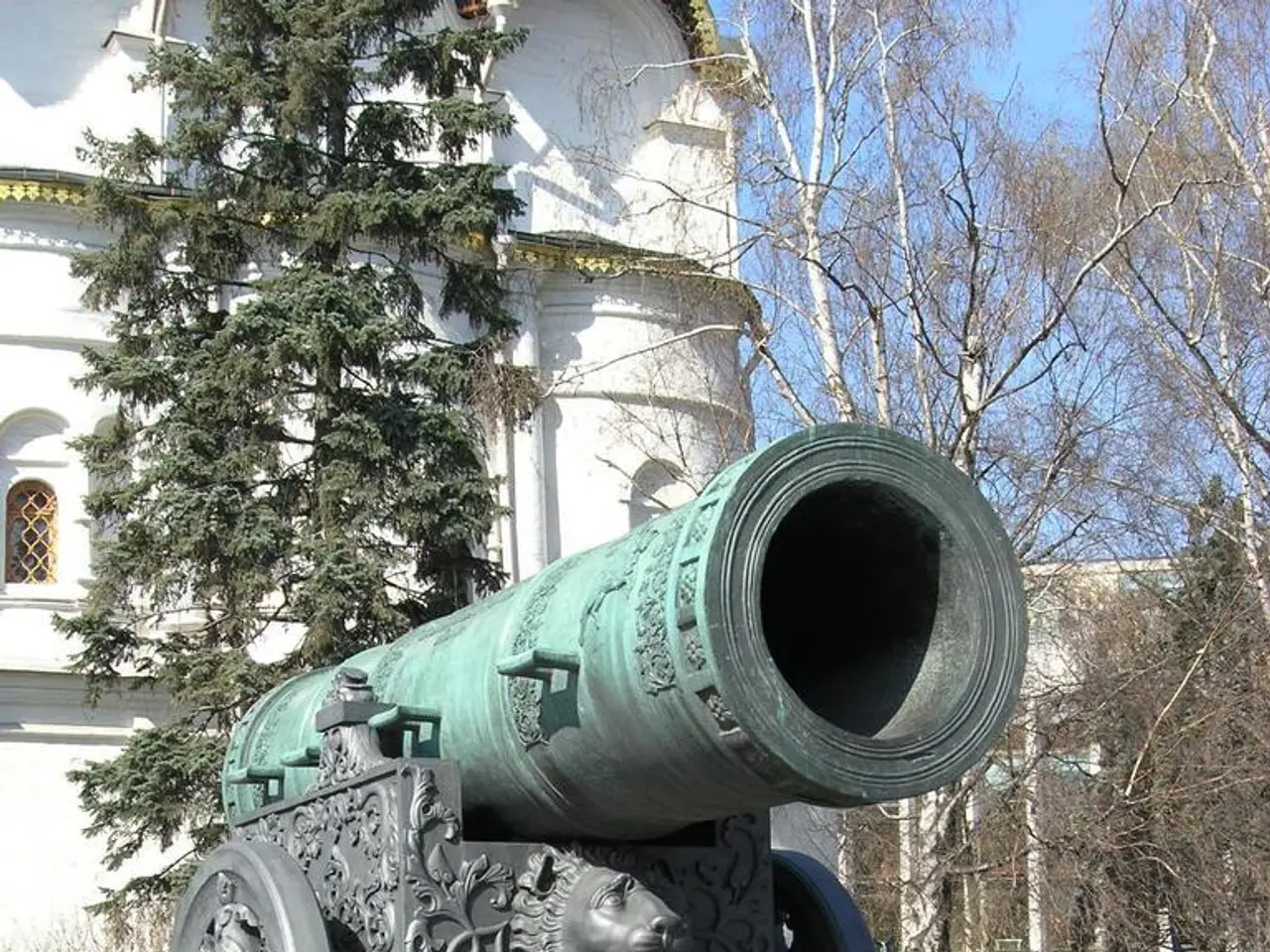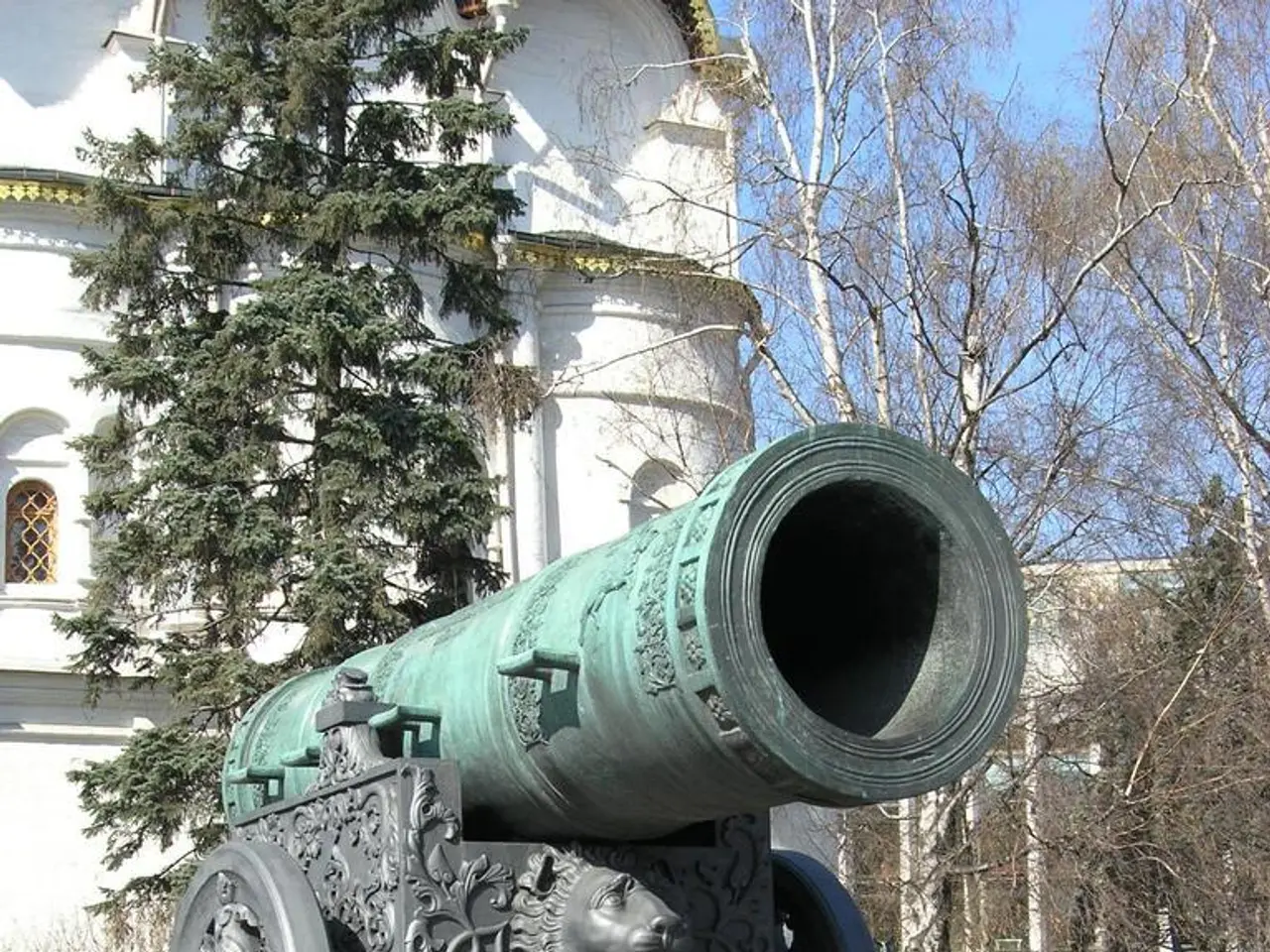Kazakhstan's challenging dilemma: building new nuclear power facilities
Kazakhstan, a landlocked Central Asian nation, has announced plans to build multiple nuclear power plants in collaboration with both Russian and Chinese state-owned companies. This decision, driven by strategic geopolitical considerations, aims to balance relations with its two powerful neighbors while addressing its growing energy needs.
The Russian state-owned atomic energy corporation, Rosatom, has been awarded the contract for the first nuclear power plant project. Simultaneously, the Chinese government's China National Nuclear Corporation (CNNC) has been appointed to head the consortium for another NPP, signalling Kazakhstan's intent to maintain a multi-vector foreign policy and deepen cooperation with China without alienating Russia.
One of the key geopolitical reasons behind this move is the need to balance great power influence. Kazakhstan seeks to avoid exclusive dominance by Russia in its nuclear sector, acknowledging the importance of maintaining a strong relationship with China. President Tokayev has explicitly termed CNNC a "reliable strategic partner," underscoring the desire to keep China engaged in Kazakhstan’s nuclear energy future alongside Russia.
Another factor is managing Russian sensitivities. Russia is politically sensitive amid its geopolitical setbacks, particularly related to the war in Ukraine and regional tensions. Kazakhstan's decision to appoint Rosatom as the head of the first NPP consortium is partly motivated by a "do-not-poke-the-bear" logic, reflecting caution not to antagonize Moscow given its historical influence and recent political pressures, including high-level Russian overtures to Kazakhstan’s former leadership.
Strategic energy security and diversification are also key considerations. Kazakhstan faces a looming energy shortage that necessitates not just one but multiple nuclear power plants. By engaging both Russian and Chinese firms, Kazakhstan ensures a diversified supply chain and technological partnership, reducing overdependence on a single country or technology provider.
Long-term economic and technological partnerships are also a significant factor. Nuclear power plants create decades-long interdependencies. Including both Rosatom and CNNC in separate nuclear projects fosters long-term ties with Russia and China, involving fuel supply, maintenance, upgrades, and safety, thus embedding Kazakhstan more deeply into the regional energy architecture dominated by these powers.
China's involvement in Kazakhstan's nuclear energy sector is also seen as a strategic challenge to Russia’s traditional energy dominance in Central Asia. Kazakhstan engaging CNNC for its second NPP is interpreted as a move to gradually increase Chinese influence economically and technologically in its energy sector, complementing existing Chinese investments in fossil fuels and renewables.
At present, no major protests are expected regarding the expansion of nuclear energy in Kazakhstan. The government secured popular support for nuclear power through a controversial referendum in October 2024. However, the decisions to involve both Russian and Chinese companies in nuclear power plant projects are undoubtedly geopolitically motivated, reflecting Kazakhstan's balancing act between its two powerful neighbors.
References: [1] The Diplomat, (2022). Kazakhstan's Nuclear Ambitions and Russia's Role. [Online] Available at: https://thediplomat.com/2022/07/kazakhstans-nuclear-ambitions-and-russias-role/ [2] The Asia Times, (2022). China's nuclear power push in Central Asia. [Online] Available at: https://asiatimes.com/2022/10/chinas-nuclear-power-push-in-central-asia/ [3] The Moscow Times, (2022). Kazakhstan's Kassym-Jomart Tokayev Says Russia's Military Presence in Central Asia Is a Necessity. [Online] Available at: https://www.themoscowtimes.com/2022/04/27/kazakhstans-kassym-jomart-tokayev-says-russias-military-presence-in-central-asia-is-a-necessity-a77958 [4] The National Interest, (2022). Kazakhstan's Nuclear Power: A Step Toward Energy Independence. [Online] Available at: https://nationalinterest.org/blog/buzz/kazakhstans-nuclear-power-step-toward-energy-independence-199342
- The decision to involve both the Chinese government's China National Nuclear Corporation (CNNC) and Russia's state-owned atomic energy corporation, Rosatom, in separate nuclear power plant projects in Kazakhstan is a reflection of its general-news focus on maintaining a multi-vector foreign policy, aiming to balance relations with its two powerful neighbors while deepening cooperation without alienating either.
- In the realm of education, Kazakhstan's strategic move to appoint Rosatom as the head of the first NPP consortium and CNNC for another NPP project can be seen as a case study in political science, demonstrating the intricacies of geopolitical dynamics and the balancing act countries undertake to manage great power influence, avoid exclusive dominance, and ensure energy security and diversification.







